Drafts by Burcu Degirmen Dysart
Papers by Burcu Degirmen Dysart
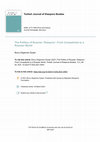
The Politics of Russian ‘Diaspora’: From Compatriots to a Russian World, 2021
Since the collapse of the Soviet Union in 1991 left twenty-five
million ethnic Russians living ou... more Since the collapse of the Soviet Union in 1991 left twenty-five
million ethnic Russians living outside the contemporary
borders of the Russian Federation, the country’s ruling elite have
undertaken increasing efforts over time to formulate policies on
“compatriots”, regardless of whether this population has conceived
of themselves as such. Drawing on political speeches, official
policy documents, and scholarly literature, this paper seeks to
illustrate how the Kremlin’s understanding of the boundaries
and meaning of national identity has driven its diaspora politics.
More precisely, I argue that the contextualization of Russian
diaspora is constituted and constrained by the vision of national
identity that the Kremlin endorses over other competing visions
of Russian identity, since diaspora is primarily defined in
reference to the nation. Moreover, my research highlights that the
Russia’s interaction with Europe and the West plays a key role in
the process of constituting its identity. This interaction, in turn,
influences how the Russian authorities formulate diaspora policies
in the former Soviet states. Finally, I suggest that the Kremlin’s
instrumentalization of compatriots serves as a domestic goal by
promoting national unity around a vision of national identity that
it endorses.
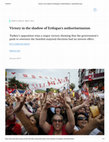
Open Democracy
Victory in the shadow of Erdogan's authoritarianism | openDemocracy https://www.opendemocracy.net... more Victory in the shadow of Erdogan's authoritarianism | openDemocracy https://www.opendemocracy.net/en/north-africa-west-asia/victory-in-the-shadow-of-erdogans-authoritarianism/ 2/11 Supporters of Ekrem Imamoglu, opposition CHP candidate during a rally on June 21, 2019. | Picture by Kemal Aslan / Depo Photos/ABACA/PA Images. All rights reserved. O n June 23, Istanbul residents cast a ballot to elect their mayor for the second time in the last three months. Even though the ruling elite's de-facto control of state institutions secured a re-vote for their candidate, the main opposition party's candidate once again won the elections by gaining even larger public support -54 % to 45 %. What these results tell us is that the government's push to overturn the elections had an inverse effect by undermining its political legitimacy. Having won six parliamentary elections, four local elections, two presidential elections, and three constitutional referenda, President Recep Tayyip Erdogan and his Justice and Development Party (AKP) have been dominating Turkey's politics over the last seventeen years. Even though Erdogan's regime has harnessed strong
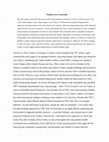
The past couple of days have been some of the most tumultuous moments in Turkey’s modern history.... more The past couple of days have been some of the most tumultuous moments in Turkey’s modern history. Last week’s failed military coup, which sought to oust Turkey’s President Recep Tayyip Erdogan and his supporters from government, took many observers by surprise, while the timing and planning of the attempted coup still begs a myriad of questions. As more information has come to light concerning the coup’s instigators and participants, the purported role that U.S.-based Islamic cleric Fethullah Gulen’s sympathizers played in orchestrating the coup has been widely discussed in the media. Furthermore, over the past several days, many media outlets have reported that Justice and Development Party (hereafter, AKP as it is known in Turkey) has initiated a massive purge of suspected Gulenists within Turkey’s bureaucracy. Moreover, the AKP’s struggle to clean the Gulen “virus” from all of Turkey’s state institutions has a chance to greatly alter the trajectory of Turkey’s current regime and the underpinning of Turkish Republic itself.
Book Reviews by Burcu Degirmen Dysart
Europe-Asia Studies, 2022
Talks by Burcu Degirmen Dysart
Cumhuriyet Gazetesi, 2022
Cumhuriyet Gazetesi, 2022
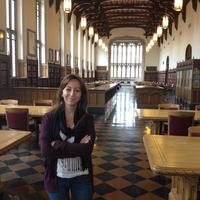





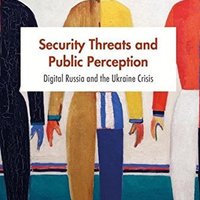



Uploads
Drafts by Burcu Degirmen Dysart
Papers by Burcu Degirmen Dysart
million ethnic Russians living outside the contemporary
borders of the Russian Federation, the country’s ruling elite have
undertaken increasing efforts over time to formulate policies on
“compatriots”, regardless of whether this population has conceived
of themselves as such. Drawing on political speeches, official
policy documents, and scholarly literature, this paper seeks to
illustrate how the Kremlin’s understanding of the boundaries
and meaning of national identity has driven its diaspora politics.
More precisely, I argue that the contextualization of Russian
diaspora is constituted and constrained by the vision of national
identity that the Kremlin endorses over other competing visions
of Russian identity, since diaspora is primarily defined in
reference to the nation. Moreover, my research highlights that the
Russia’s interaction with Europe and the West plays a key role in
the process of constituting its identity. This interaction, in turn,
influences how the Russian authorities formulate diaspora policies
in the former Soviet states. Finally, I suggest that the Kremlin’s
instrumentalization of compatriots serves as a domestic goal by
promoting national unity around a vision of national identity that
it endorses.
Book Reviews by Burcu Degirmen Dysart
Talks by Burcu Degirmen Dysart
million ethnic Russians living outside the contemporary
borders of the Russian Federation, the country’s ruling elite have
undertaken increasing efforts over time to formulate policies on
“compatriots”, regardless of whether this population has conceived
of themselves as such. Drawing on political speeches, official
policy documents, and scholarly literature, this paper seeks to
illustrate how the Kremlin’s understanding of the boundaries
and meaning of national identity has driven its diaspora politics.
More precisely, I argue that the contextualization of Russian
diaspora is constituted and constrained by the vision of national
identity that the Kremlin endorses over other competing visions
of Russian identity, since diaspora is primarily defined in
reference to the nation. Moreover, my research highlights that the
Russia’s interaction with Europe and the West plays a key role in
the process of constituting its identity. This interaction, in turn,
influences how the Russian authorities formulate diaspora policies
in the former Soviet states. Finally, I suggest that the Kremlin’s
instrumentalization of compatriots serves as a domestic goal by
promoting national unity around a vision of national identity that
it endorses.